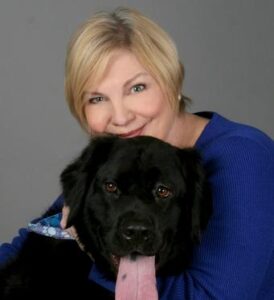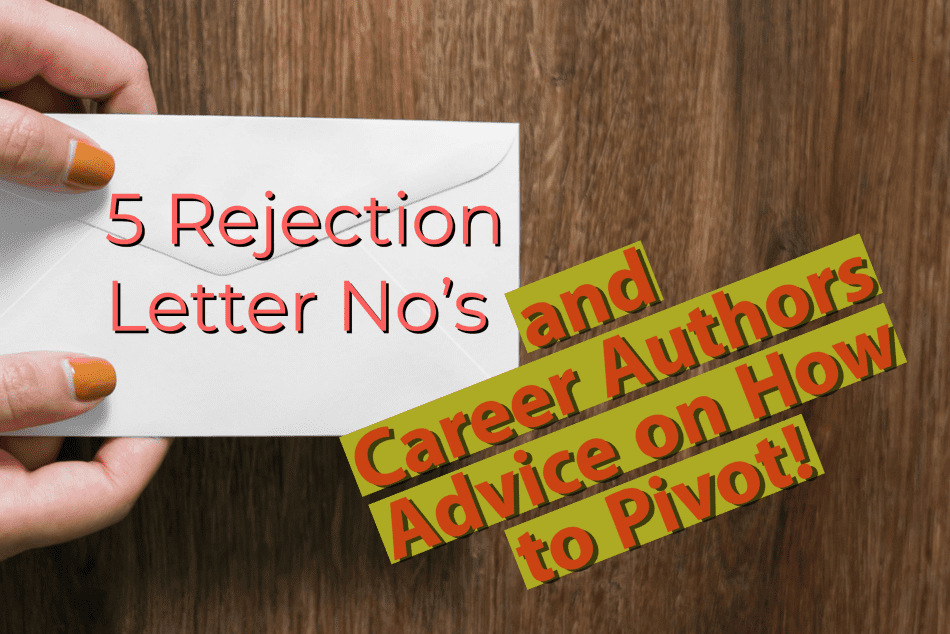Getting rejection letters is a fact of life for writers.
No matter how immensely talented you are and what a great book you’ve written, expect to hear “No” at least a few times—if not more. Certainly not every project is suited to every agent, editor, or publisher, and you want to build a team in which everyone is fully on board and committed. And while you should not presume to hear a choruses of “yes” to any and all projects, you may benefit from the experience of rejection by listening carefully to any critical feedback received.
Many agents and authors make submissions of their book to a limited group of editors, getting feedback, then incorporating those editorial changes into the author’s work before sending it off on another round of submissions to a different group.
Listening is part of the process.
The faculty at the upcoming Endicott House Writers Conference will address head-on many critical issues holding back writers from getting published.
Below are a few lines from rejection letters, followed by suggestions from our at Endicott House experts on how to address them. Much more info of course, will be available at the upcoming conference on May 5-7.

At Endicott, author Jessica Strawser is teaching a class on “Voice”
THE FEEDBACK: Dear Author, I didn’t connect with the voice.
THE FIX: Voice often plays a big role in that elusive “it factor” that can make or break a submission. As such, it can feel like the hardest to define: Voice encompasses your writing style, your story’s point(s)-of-view, and your characters’ attitudes, worldviews and personalities, all rolled into one.
It’s important to understand that this kind of “I didn’t connect…” feedback is subjective—and what’s true for one agent or editor might not be for another. But if you see a pattern in the responses you receive, try reading your first chapter aloud. Ask yourself honestly: If you were to have a different character narrate your story, would the narrator feel more or less interchangeable, or would it dramatically impact the way we see this scene unfold?
If the answer is “more or less interchangeable,” it’s time to delve deeper into who your character is and how he or she sees the world of your story. Revisit their word choices until they sound more like themselves and less like anyone else you know; amplify their opinions, even if they don’t say them aloud; tighten your viewfinder so we’re seeing the story unquestionably through their eyes.
Strong voices feel memorable and distinctive. Chances are, when you get it right, you’ll know. And you’ll see results.
 At Endicott, Dana Isaacson is teaching a class on “The Right Book at the Right Time.”
At Endicott, Dana Isaacson is teaching a class on “The Right Book at the Right Time.”
THE FEEDBACK: Dear Author, the writing did not seem strong enough.
THE FIX: Sometimes when authors get a rejection letter like this, they think, “What the heck does an editor do? So fix it!”
But that’s not how the business of publishing works. Agent Paula Munier says that she will not submit a new project to a publisher unless it is 90% done. That means to strengthen your novel you too must learn to be an editor. A first draft is a starting point, not the finish line.
“The only kind of writing is rewriting.”
–Ernest Hemingway
Good writing means proper grammar and punctuation. These are critical aids in communication. You want to get them right for a number of reasons—one of them being a professional presentation.
Strong writing also means powerful communication, or effectively expressing a narrative. Technically good writing must be coupled with a great plot, complete with stakes and pacing and voice. If you are told your writing is not strong enough, pinpoint its weaknesses—be they technical, structure or conceptual. Then revise. Unhindered by unnecessary errors, a strongly written narrative moves readers—which is what they come for.
 At Endicott, Brian Andrews is teaching a class on “Worldbuilding”
At Endicott, Brian Andrews is teaching a class on “Worldbuilding”
THE FEEDBACK: Dear Author, I wasn’t able to connect with the material.
THE FIX: After reading vague, negative feedback like this, a normal reaction for any aspiring author might be to write off the comment as a canned rejection. But that would be a mistake because this type of criticism has roots worth digging up. Let’s decode it!
“I wasn’t able to connect with the material” actually means that the reader never found themself immersed in the universe you as the author created. In fiction writing we call this “world-building,” and it refers to everything around, above, below, and behind your characters. It’s the setting, geopolitics, culture, science and technology, religion, and history of the place and community where your characters reside. The most famous and successful franchises (both in print and on the silver screen) are easily recognizable by the world-building the creatives behind the story have built.
Some iconic examples include:
- Neverland in Peter Pan
- Narnia in the Lion, The Witch, and The Wardrobe
- Middle Earth in the Lord of the Rings
- The kingdom of Westeros in the Game of Thrones franchise
- The twelve Districts of Panem in the Hunger Games franchise
The worlds created by the authors of the books listed above are so distinctive, rich and detailed that a reader is transported to another place and time. World building transcends the standard tenants of setting. It’s so much more than time of day, place, weather, and room descriptions. It’s the global mechanism that the characters are forced to reside and navigate within. There are rules, constraints, norms, laws, traditions, and physical elements that both limit and guide the characters’ behavior. And world building does not only apply to fantasy and science fiction. For novels set in the present on regular old Earth, author still must world-build! The richer the world around a novel’s character, the greater the immersive pull.
To create connection with the material, you must build a world that is wonderous but relatable, enticing but harrowing, and most of all, a place the reader wants to escape to and loiter for hours.
 At Endicott, Hank Phillippi Ryan is teaching a class on “The Three-Act Structure”
At Endicott, Hank Phillippi Ryan is teaching a class on “The Three-Act Structure”
THE FEEDBACK: Dear Author, your story does not seem cohesive. While it starts strong, it quickly loses direction and punch, begins to wander, and the reader is not compelled to keep reading.
THE FIX: First reaction: yay, it starts strong! And lucky you to have gotten such a promising reaction. But an effective novel is not just a great log line or a great beginning—it takes skill and determination and a deep understanding of storytelling carry an entire book. And whether you use an outline or not, a solid grasp of the storytelling structure is key to your novel’s success.
“The three-act structure” may sound like something cookie-cutter you learned in high school—but harnessing the elements of that structure can make your novel soar, and can be the powerful engine that keeps your story flying. What is the purpose of each act? How do you use that to the fullest? How do you get from “wandering” to “riveting”?
Understanding the three-act structure can be your secret to success.
 At Endicott, Paula Munier is teaching a class on “How to get an Agent”
At Endicott, Paula Munier is teaching a class on “How to get an Agent”
THE FEEDBACK: Dear Author, I just didn’t fall in love with the protagonist.
THE FIX: I hear this one from agents and editors all the time.
Readers want to fall in love with the protagonist; they want to go on a journey with this character, walk a mile in their shoes, from Page One to the End. And while you hear a lot about unlikable and/or unreliable narrators, the truth is that most readers prefer to spend their time with a likable or at least admirable character.
They want someone they can root for, someone smart and competent if not altogether charming. Not perfect—nobody likes perfect—but someone worthy of a reader’s money, time, and attention. Think of Sherlock Holmes. He’s a drug-addicted mess, but he’s also the smartest guy in the room. Or Bridget Jones, who’s a mess in virtually every aspect of her life but she wins you over with her honesty and vulnerability. Or Arthur Less, who’s an aging, washed-up writer but he makes you laugh every step of the way on his overseas last-chance book tour.
Give us heroes and heroines who are engaging and endearing and then send them on a journey that will change their lives—and readers will follow along.

Rejection letters can be valuable learning experiences—as can writers conferences.
At MIT’s gorgeous Endicott House, let editors, an agent, and bestselling writers advise you on the best strategies to tell your story and get your book published. In this beautiful setting, with delicious food, drink, and good company all, you will become inspired—literally. Learn more about what’s on schedule here.





